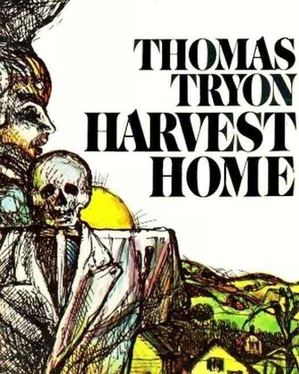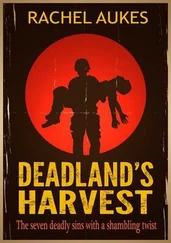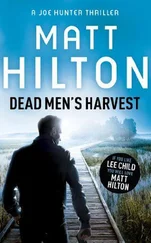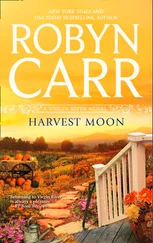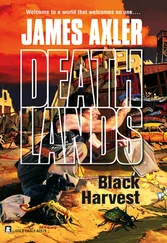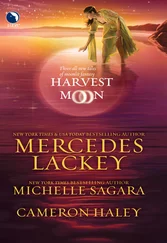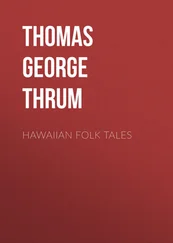Thomas Tryon - Harvest Home
Здесь есть возможность читать онлайн «Thomas Tryon - Harvest Home» весь текст электронной книги совершенно бесплатно (целиком полную версию без сокращений). В некоторых случаях можно слушать аудио, скачать через торрент в формате fb2 и присутствует краткое содержание. Жанр: Ужасы и Мистика, на английском языке. Описание произведения, (предисловие) а так же отзывы посетителей доступны на портале библиотеки ЛибКат.
- Название:Harvest Home
- Автор:
- Жанр:
- Год:неизвестен
- ISBN:нет данных
- Рейтинг книги:5 / 5. Голосов: 1
-
Избранное:Добавить в избранное
- Отзывы:
-
Ваша оценка:
- 100
- 1
- 2
- 3
- 4
- 5
Harvest Home: краткое содержание, описание и аннотация
Предлагаем к чтению аннотацию, описание, краткое содержание или предисловие (зависит от того, что написал сам автор книги «Harvest Home»). Если вы не нашли необходимую информацию о книге — напишите в комментариях, мы постараемся отыскать её.
For Ned and his family, Cornwall Coombe was to be come a place of ultimate horror.
Harvest Home — читать онлайн бесплатно полную книгу (весь текст) целиком
Ниже представлен текст книги, разбитый по страницам. Система сохранения места последней прочитанной страницы, позволяет с удобством читать онлайн бесплатно книгу «Harvest Home», без необходимости каждый раз заново искать на чём Вы остановились. Поставьте закладку, и сможете в любой момент перейти на страницу, на которой закончили чтение.
Интервал:
Закладка:
Tradition, he continued, was the important thing here: tradition and custom, customs that had been preserved through the villagers’ lineage since olden times. They were a tightly knit, insular group, these corn farmers, apparently determined to cut themselves off from the rest of society in an effort to preserve their own folkways, much as had the Amish in Pennsylvania, the Mennonites in Ohio. What had been good for a man’s father and grandfather was good enough for him; what they had worn, he wore; the tools they used, he used-a scythe to mow the hay, a sickle to cut the corn.
The Professor sat comfortably in his chair, savoring his drink from time to time, his head directed straight before him, his eyes completely hidden behind his dark glasses, whose side pieces admitted no light. The people of Cornwall Coombe were good people, he continued, from good stock, but their ways were different from most people’s, and they took a deal of getting used to. Some might find it difficult adapting to the village ways, he pointed out, with, I thought, a hint of something in his tone, as though he thought perhaps we might not be able to-or, to put it more strongly, not be willing to.
The village was not rich, which was all right; small, which was fine; quaint, which was nice. The farmers were sociable according to their custom; worshiped according to their custom; ate, drank, fasted, worried and wept, married, gave birth, and were laid to rest according to their custom; were not particularly interested in what went on in the world and, according to their custom, never went there to see. Were we, he wondered, prepared to adapt?
Rising with Beth, I said we were. We were prepared for anything. The Professor sipped from his glass and tapped his nail against the rim. He hoped, he said, we would prosper.
3
While Beth squeezed fresh orange juice, I sat at the farm table in our new kitchen scanning the morning news. It all seemed familiar. There had been another skyjacking, an Eastern flight. It was the second that week; the first had ended in shooting, two bandits dead in the cabin, terrified passengers, a disgusted crew. A man in California had gone amok, had killed his wife and four children. It made me sick to look at the paper. The trouble in Ireland-religious persecution in this year of our Lord, 1972; heavy artillery banging away on the Golan Heights; Americans dropping bombs on insignificant Vietnamese huts.
I turned the page to look for Peanuts.
“Don’t forget your vitamins,” Beth reminded me. She pointed to the array of capsules and pills she always set out beside my plate: ascorbic acid, Super-Potent B-Complex Alerts, Multi-Vita-Mineral tablets, brewer’s yeast, niacin, and riboflavin.
I washed them down in sets with the orange juice. Beth poured coffee from the electric percolator, then continued making breakfast while I sipped from my cup. On the radio, Milton Cross was advertising the “Barcarolle” from The Tales of Hoffmann , plus a million other sensational semiclassical glories, all for the low price of $3.95.
Beth paused to gaze out the picture window at the terrace beyond, with its unfinished wall. “It’s like a beginning, isn’t it?”
“What is?”
“Oh-today. Somehow it feels like a beginning.” I supposed the fair, locally signifying the end of summer, had something to do with her thought.
“A new beginning for us?”
“Something like that.”
“Maybe we ought to start by going to church tomorrow.”
“I didn’t necessarily mean that new a beginning.” Daughter of a minister, Beth had shunned churches ever since we’d been married.
“A token appearance might not be a bad idea, just to grease the skids a bit.”
She turned, brightening. “Have you noticed? They seem to be changing. Don’t you think they are? Toward us?”
We had arrived outsiders, city people, not wanted on the voyage. “They” had been aloof-not unfriendly, but as remote from us as their village was from the roads and highways. After our arrival, in my infrequent forays about town, I had met with singular indifference. Then, happily, and for no apparent reason, I began getting friendly nods, a word here and there.
Fred Minerva would come around to offer some canny advice about insulating the house or to dump a load of fresh manure for the new lawn; Edna Jones would stop by with a begonia cutting, some kale or Swiss chard from her kitchen garden. Suddenly I felt we had neighbors, friends, that we were at last becoming a part of the life around us and were not merely interlopers.
“It must be the Widow, don’t you think?”
I was forced to agree. At least I could see no other answer. The Widow Fortune had become our benefactress. Robert Dodd, our next-door neighbor, had said she was the oldest inhabitant in Cornwall Coombe, a sort of matriarch whom all the villagers respected to the point of reverence, a local antique. She was the woman I had spoken with on the church steps on Planting Day, and she was the first to arrive, in her buggy, at our kitchen door. I suspected Beth was right: after her had come the others. The Widow Fortune-I had told myself her name was lucky.
I beckoned to Beth, and she came and sat on my lap. I could smell the sweet, natural fragrance of her hair, the lingering aroma of the Pears’ soap she always used. “Is It O.K., sweetheart? You’re not sorry we came?”
“It’s O.K. And I’m not sorry we came. It’s just-it’s difficult getting used to their ways.”
“If we want them to get used to our ways, we’re going to have to get used to theirs. It’ll be all right, you’ll see.”
She got up and spun a little happy turn. “I love my new kitchen.”
“Beats Chock Full o’ Nuts.”
“ Ned -you never had to eat breakfast at Chock Full o’ Nuts!”
“Only kidding, sweetheart.” Listening for Kate’s footsteps overhead, I watched Beth as she scrambled eggs, browned sausage, took rolls from the oven, dropped bread into the new toaster. Her movements were deft and economical, and she moved about the various work areas in a planned pattern, with no wasted motions. I found her extraordinary-but then I always had.
“Are you going to sketch after breakfast?” she asked.
“I’d like to finish those tombstones; then I thought I’d walk out to the Lost Whistle Bridge.”
“All that way?”
“It’s not far.” With my right forefinger, I felt the small lump that had recently formed on my left third finger, a wart which seemed the result of continual pressure from my various drawing instruments. “It’d be good for Kate to be seen in church, don’t you think? Wouldn’t hurt us, either, getting in good with the-”
“Natives? Maybe. But I don’t think Kate wants to spend Sunday morning listening to Mr. Buxley preach. It’s difficult enough-”
Still no sound from upstairs. Kate must be sleeping late- not unusual; she didn’t rest well at night. A violent asthmatic since the age of nine, our daughter had been subject to even more vicious attacks since coming to Cornwall Coombe. At that very moment, we didn’t know what condition she would appear in, whether, in fact, she would be able to go to the fair at all. Or want to. Kate was difficult. Still, we offered ourselves the pretense that all was well, and hoped we were right.
While breakfast cooked, Beth brought things from the refrigerator and began making the picnic lunch, stuffing plump chicken breasts with a tempting mixture from a blue-ringed mixing bowl.
I squinted at her, reducing her figure to a silhouette, taking in the series of curves and angles, the splash of dark hair falling over one eye. Bethany Constantine, nee Colby; thirty-seven years old; Scotch-Irish-English ancestry; Miss Kemp’s School, Boston; Bennington, Liberal Arts major. Measurements: 35”, 28”, 32”; trim, neat body; a full mouth, perhaps a little too wide for the triangular face; a pussycat sort of face, quick to smile, not so fast to frown.
Читать дальшеИнтервал:
Закладка:
Похожие книги на «Harvest Home»
Представляем Вашему вниманию похожие книги на «Harvest Home» списком для выбора. Мы отобрали схожую по названию и смыслу литературу в надежде предоставить читателям больше вариантов отыскать новые, интересные, ещё непрочитанные произведения.
Обсуждение, отзывы о книге «Harvest Home» и просто собственные мнения читателей. Оставьте ваши комментарии, напишите, что Вы думаете о произведении, его смысле или главных героях. Укажите что конкретно понравилось, а что нет, и почему Вы так считаете.
